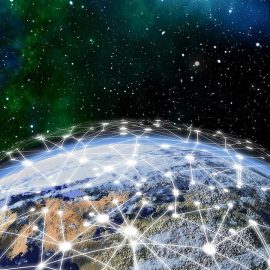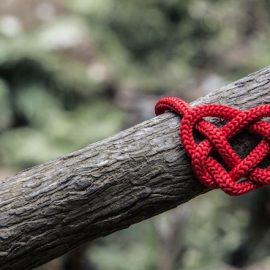
What are the benefits of community? How can building relationships improve your health and well-being?
The benefits of community include reducing anxiety and depression and even lowering the risk of heart disease. Understanding these benefits as well as strategies for building relationships can help you improve both your mental and physical health.
Continue reading to learn how to build community and how having community can benefit you.
Nurturing Strong Relationships
Practicing vulnerability helps you foster a key element of groundedness: Having strong and meaningful connections with others. The benefits of community include preventing loneliness and giving you a sense of belonging—one of our basic human needs.
Loneliness takes a toll on our mental, emotional, and physical health. Studies show that loneliness causes increased stress and inflammation and puts you at higher risk for illnesses like heart disease, anxiety, and depression. In today’s culture, our fixation with productivity and success leads many of us to neglect our relationships, and according to research, people have become three times lonelier in recent decades.
Loneliness is a vicious cycle. Loneliness triggers your body’s threat response, which raises your stress hormones and blood pressure. The reason this happens is evolutionary: When our ancestors were alone and separated from a group, they had to be more vigilant to threats in order to survive. However, if we’re constantly feeling insecure and scanning for threats, we find it harder to empathize and connect with others. This only perpetuates a sense of loneliness.
On the other hand, building strong relationships is a virtuous cycle. Evolutionarily, our ancestors relied on trust and cooperation to survive, so we have a natural tendency to form bonds with people. When we make meaningful connections with others, we feel more secure and accepted, which in turn makes us more receptive to new people.
| Loneliness Can Cause Depression In Lost Connections, Johann Hari argues that being disconnected from others is a primary cause of depression. He elaborates on our evolutionary history: Loneliness not only triggered our ancestors’ stress response to prepare them for threats, but it also made them depressed, which motivated them to return to their tribe. People who stayed with their tribe were more likely to survive and pass on their genes than loners, so we’ve evolved to be especially sensitive to the effects of loneliness and isolation. Hari argues the importance of making meaningful connections for two reasons: First, he notes the worsening trend of loneliness and explains that people feel increasingly lonelier because almost every form of social connection is becoming less common (like having regular dinners with friends). Second, Hari explains that loneliness not only elevates your stress levels, but it causes your body to release the same amount of stress hormones as it would if you were being physically attacked. Hari agrees that loneliness and companionship are self-reinforcing loops and says building genuine relationships with others by practicing communal care (helping others and accepting help in turn) restores us to our natural, healthy state as social animals. |
Prioritize Quality Over Quantity
As you pursue community bonds, focus on creating deep, meaningful connections with a select few individuals instead of forming shallow relationships with many. The ease of connecting with others in our digital age can lead us to connect with too many people. We mistakenly believe that by connecting with more people—by amassing friends on social media, for instance—we’ll feel less lonely. However, the reverse is usually true: Shallow connections often leave us feeling lonelier. Instead, you should cultivate strong relationships with a smaller group of people, which will lead to genuine happiness.
But which relationships should you prioritize? The people you spend time with have a big impact on you—their emotions, behaviors, and attitudes affect your own. Because of this, you should prioritize making close and meaningful connections with people who share your values.
(Shortform note: To make more quality connections, it may be helpful to first evaluate your current relationships. In Minimalism, Joshua Fields Millburn and Ryan Nicodemus suggest you do so by making a relationship chart: In the first column, write down the names of every person you regularly interact with. In the second column, categorize each relationship as primary (your closest friends and family), secondary (your close friends or extended family), or peripheral (your acquaintances). Then, in the third column, write down the effect of each relationship on your life: positive, negative, or neutral. Once you do, you can start rethinking what role these people should play in your life.)
To cultivate deeper bonds, use technology as a tool wisely: Use it to arrange more in-person interactions but not to replace them. Being physically present with others is crucial for empathy and connection, so scrolling through social media feeds or sending text messages shouldn’t substitute for in-person connections. Instead, use technology to stay in contact with your community and organize meetups.(Shortform note: In Digital Minimalism, Cal Newport argues that digital interactions don’t actually satisfy our social needs, yet we gravitate toward them because they’re easier and faster alternatives. To use technology as a tool (and not a replacement) for connection, Newport suggests you use digital communication for only two purposes: 1) planning and coordinating conversations and 2) sharing simple logistical information. For instance, instead of leaving likes and comments on social media (which doesn’t truly strengthen your relationship), call or meet up with the person to share your thoughts.)






